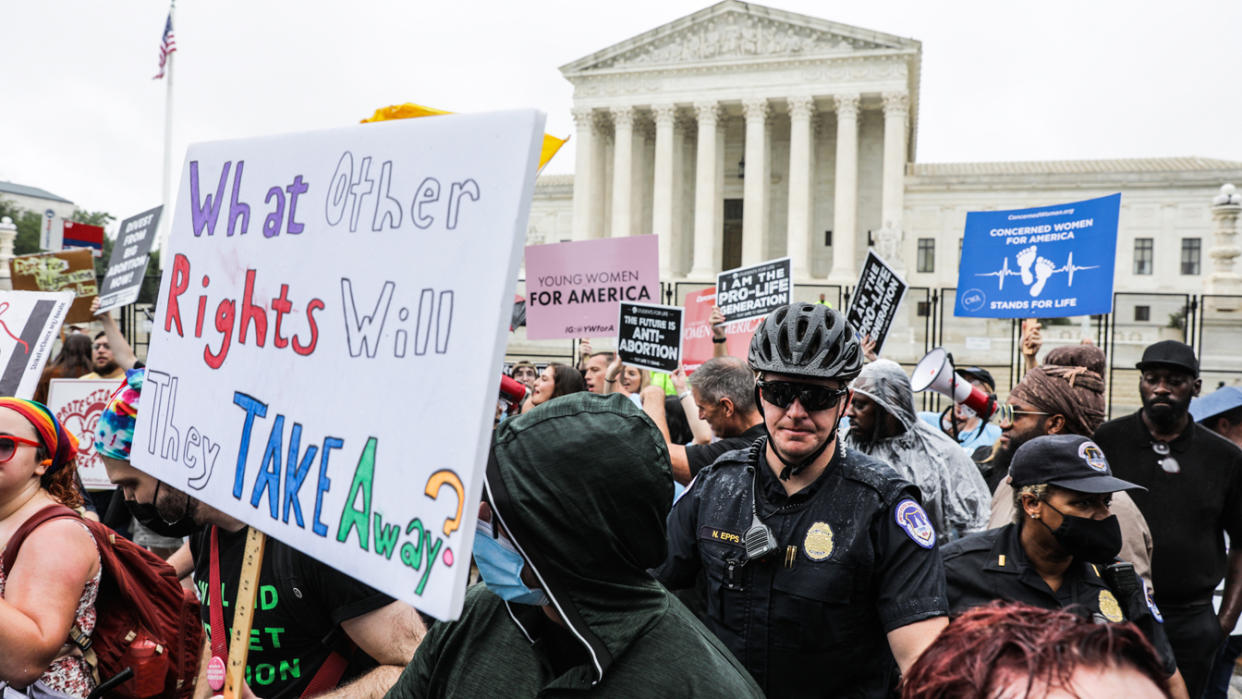Polling shows record-low confidence in Supreme Court
A new poll from Gallup has found confidence in the U.S. Supreme Court has reached a record low as the branch’s conservative majority continues to pass down controversial rulings.
In a survey released Thursday afternoon, Gallup found that only 25% of Americans have "a great deal" or "quite a lot" of confidence in the Supreme Court. This is down 11% from last year and 5 points below the previous low in 2014. The polling occurred prior to Thursday morning’s ruling striking down restrictions on concealed carry of guns, which was harshly criticized by Democrats. It also comes before an expected ruling that would eliminate legal abortion access for millions of Americans by overturning the 1973 decision Roe v. Wade.

The court’s anti-abortion stances have likely been a key factor in the recent dip in approval, which has a 6-3 majority of Republican appointees, newly expanded under former President Trump. A national survey from the Marquette Law School taken in May after a leaked draft ruling showed a 5-4 majority was primed to overturn Roe found a similar dive. (Chief Justice John Roberts, despite being an appointee of former President George W. Bush, was not part of the majority in that draft decision, written by Justice Samuel Alito, a fellow Bush appointee.) Approval in that poll was just 44 percent, down 10 points from November 2021 and 22 points from September 2020.
While members of the court have rejected the idea that they are a political body, the current makeup is the result of a years-long conservative project and maneuvering from Republican Senate Leader Mitch McConnell. McConnell held open the seat of Antonin Scalia, who was appointed by Ronald Reagan, for the final 11 months of Barack Obama’s presidency, refusing to even grant a confirmation hearing to Obama’s nominee for the seat, Merrick Garland, allowing Donald Trump to subsequently choose the replacement. McConnell then sped through the replacement of Ruth Bader Ginsburg, who died in September 2020, to make sure she was replaced by conservative Amy Coney Barrett even if Trump lost the 2020 election.
The decline in Supreme Court approval has been trending since last year, when they allowed a restrictive Texas law limiting abortion access to go into effect. A Gallup approval poll in September 2021 found that only 40 percent of Americans approved of the court, an 18 percent dip from a similar survey taken a little over a year prior.

Quinnipiac found a similar result that month, with just 37 percent of Americans approving of the court. It was the worst job approval since the university began asking the question in 2004 and a 15-percent drop from July 2020.
If the court overturns Roe v. Wade and limits abortion access as expected, it’s unlikely to result in a boost in the court's public standing. A Yahoo News/YouGov poll taken in early May found that only 31 percent of Americans wanted Roe v. Wade to be overturned, versus 51 percent who did not.
That is in line with surveys that found majorities of Americans believe abortion should be legal in “all” or “most” cases (59%, according to Pew Research) and want the Supreme Court to uphold Roe v. Wade (60%, according to the Washington Post and ABC). Polling also showed a major shift in the number of Americans who believe the court to be “conservative” or “very conservative.” In May, Yahoo News/YouGov found that 74% of Americans believed that the court was “too politicized.”
